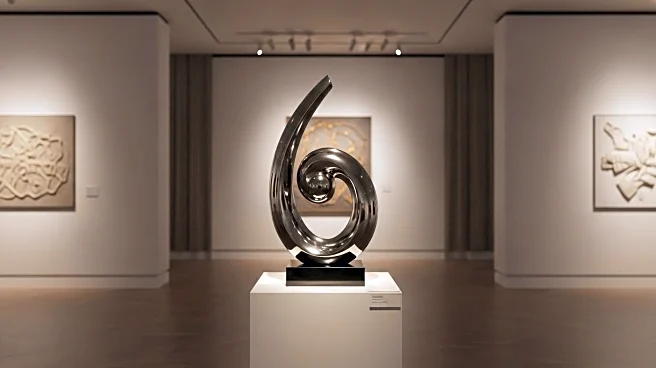What's Happening?
Austrian art dealer Thaddaeus Ropac has opened a new gallery in Milan, Italy, following recent changes in tax regulations that have made the city more attractive to art collectors and dealers. The Italian government has implemented a reduced 5% VAT on the sale and import of art, the lowest rate in the EU, which is expected to boost the local art market. Additionally, the UK government's abolishment of non-dom status has led to an influx of millionaires from London to Milan, attracted by generous tax-break schemes for expats. Ropac's new gallery is located in the historic Palazzo Belgioioso and aims to develop a local audience and market for contemporary artists.
Why It's Important?
The opening of Thaddaeus Ropac's gallery in Milan highlights the city's growing appeal as a hub for art and culture, driven by favorable tax changes and an influx of wealthy individuals. The reduced VAT rate on art sales and imports is expected to stimulate the local art market, attracting collectors and dealers seeking to capitalize on the tax benefits. Milan's strategic location and cultural significance make it an attractive destination for art enthusiasts and investors. Ropac's decision to open a gallery in Milan reflects broader trends in the art market, where cities with favorable tax structures and cultural appeal are becoming increasingly important.
What's Next?
The changes in tax regulations in Italy are likely to have a lasting impact on the art market, encouraging more dealers and collectors to consider Milan as a viable location for their activities. As the city continues to attract wealthy individuals and art enthusiasts, it may see further growth in its cultural and artistic offerings. Ropac's gallery is expected to contribute to the development of a local audience and market for contemporary artists, fostering a vibrant art community in Milan. The city's appeal as a cultural hub may also lead to increased collaboration and partnerships between local and international art institutions.
Beyond the Headlines
The tax changes in Italy not only benefit the art market but also have broader implications for the country's economy and cultural landscape. By attracting wealthy individuals and art collectors, Milan is positioned to become a key player in the global art scene, enhancing its reputation as a cultural and economic center. The influx of millionaires and art enthusiasts may lead to increased investment in local businesses and cultural institutions, further boosting the city's economy. As Milan continues to evolve as a cultural hub, it may serve as a model for other cities seeking to leverage favorable tax structures to stimulate their art markets.









